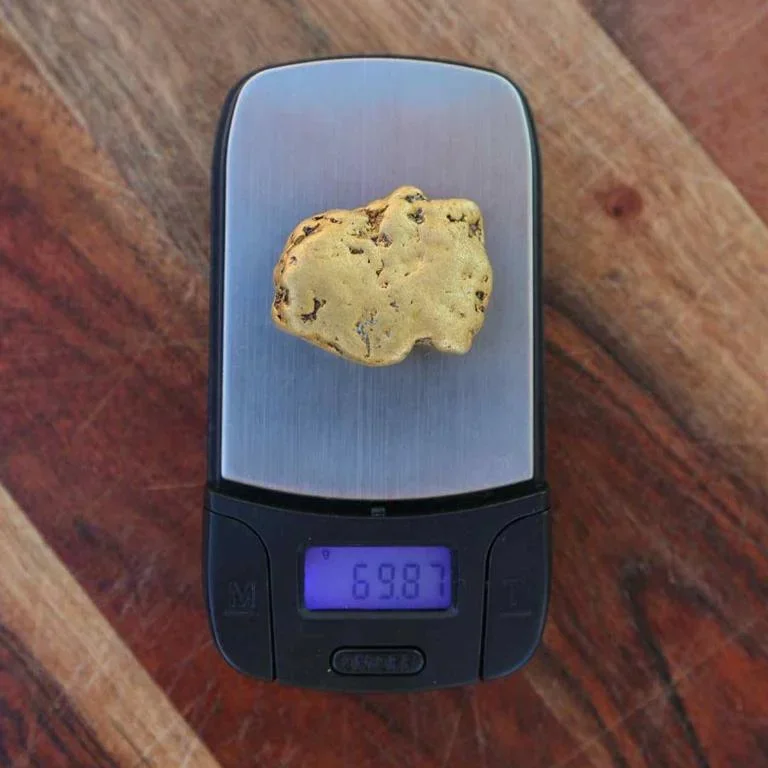Diver Uncovers “Monster” Gold Nugget in Otago Riverbed Worth $25,000
On a crisp Otago morning, a man slipped into the icy waters of a South Island river wearing a wetsuit and snorkel, hoping to find a few flecks of gold. Within minutes, he surfaced clutching something extraordinary — a gleaming gold nugget weighing nearly 70 grams, estimated to be worth around $25,000.
“It felt like a movie. It looked unreal, like a miracle,” one of his friends recalled. “We’d been camping for days, freezing in that river, not expecting much. Then suddenly he comes up holding this gleaming nugget of gold.”
The group had been sniping — a hands-on method of fossicking where divers fan away sand and gravel on the riverbed to expose hidden gold. They’ve refused to reveal the exact location but confirmed the find was made “legally on a permitted claim.”
A Rare Find
The nugget was later examined by Justin Eden, owner of The Gold Store in Arrowtown, who confirmed its authenticity and exceptional purity.
“Absolutely, it is gold,” Eden said. “Otago gold tends to be around 23 carats in purity, so it’s very high quality. A 70-gram nugget is a big piece — rare to find today — but in the big scale of things, it’s not enormous. The biggest nugget ever found in New Zealand was nearly 3 kilograms.”
Even so, Eden described it as “a lovely piece” that would easily command its $25,000 valuation on the open market.
From Facebook to Silence
Initially, the find was briefly listed on Facebook Marketplace, described as an “investment piece” with a “very fair” price. But the post disappeared soon after, and the discoverer’s friend who first contacted reporters declined further comment.
The global gold price has surged in recent months, rising by about a third following new international trade tariffs, making the nugget even more valuable.
Why Gold Hunters Stay Quiet
Professor Dave Craw, an emeritus geologist from the University of Otago, said fossicking has been part of New Zealand’s culture for more than a century.
“People still head out to creeks and rivers, enjoying the outdoors and hoping to find a bit of colour in their pan,” he said. But those who strike it lucky often keep quiet — not out of secrecy, but for safety.
“If you’ve got a few nuggets at home worth thousands of dollars, you don’t want to tell other people,” he said. “You might get robbed.”
Gold Fever With a Warning
Craw cautioned that despite the excitement, gold hunting remains grueling work. “You can spend all day in a cold, remote creek and come home with nothing,” he said. “It’s hard, dirty work. You’re better off getting a job.”
Eden echoed that advice, reminding would-be prospectors that New Zealand has only 17 designated public fossicking sites, most located in the South Island. Anyone fossicking outside those areas must hold a valid permit.
A Ministry of Business, Innovation and Employment spokesperson warned that mining illegally — even using motorised tools where only hand methods are allowed — can result in fines up to $400,000 or two years in prison.
As for the mysterious diver and his shimmering prize, both remain unnamed — and somewhere in the rivers of Otago, more hopeful fossickers are now dreaming of finding gold of their own.

